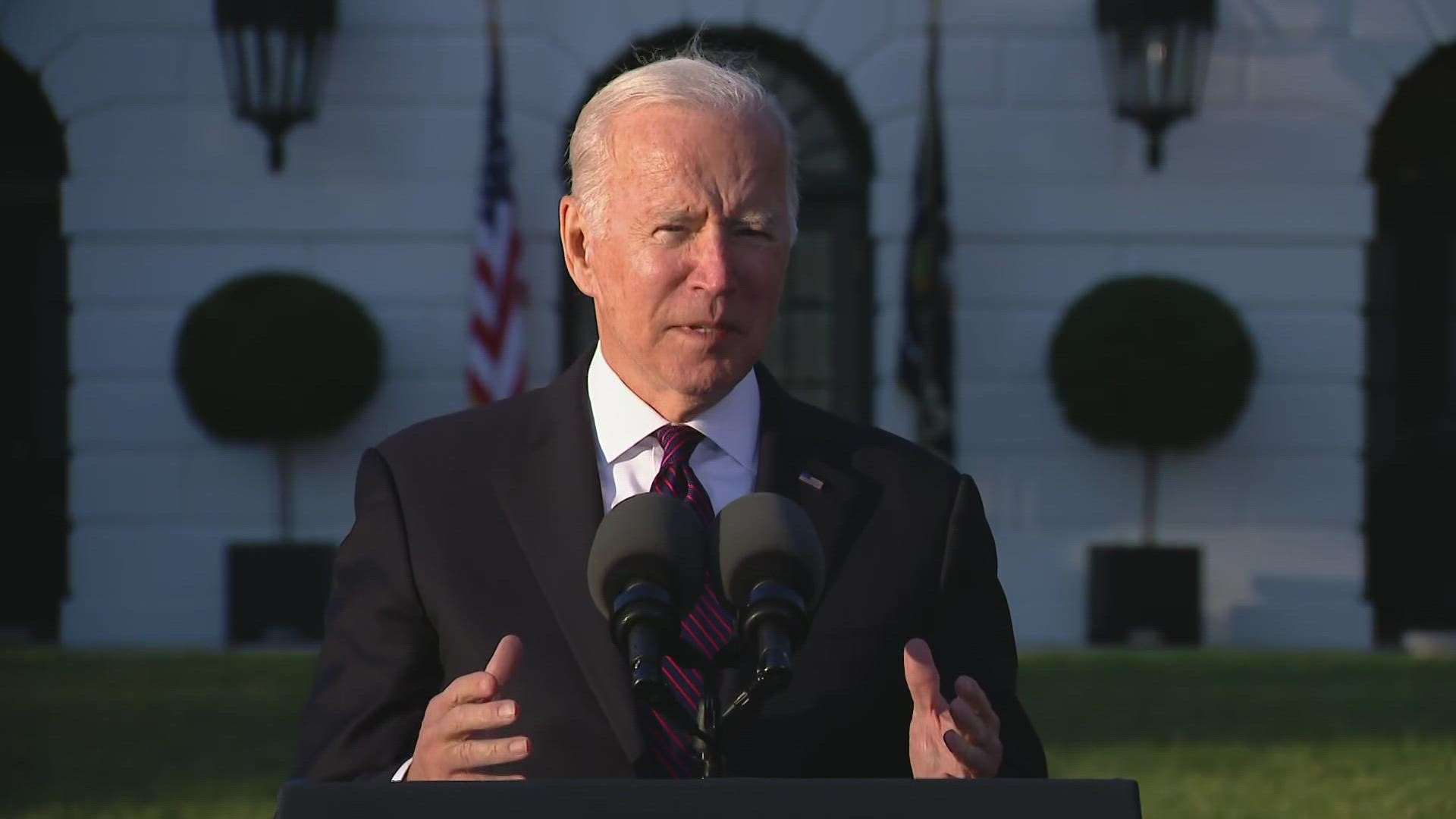NORFOLK, Va. — President Joe Biden signed a $1 trillion infrastructure bill into law Monday afternoon, paving the way for significant investments into projects across the country.
The funding from the Infrastructure Investment and Jobs Act will go to roads and bridges, public transit, electric vehicle charging stations, high-speed internet, infrastructure resiliency, clean water and updated airports.
The White House describes it as "the largest long-term investment in our infrastructure and competitiveness in nearly a century."
An amended version of the bill passed the U.S. Senate on Aug. 10 in a 69 to 30 vote, with 19 Republicans joining Democrats and Independents. It later passed in the House with support from both parties, in a 226 to 206 vote.
The White House has calculations of how the funding will be spent in Virginia and North Carolina. Here are a few of the highlights.
Roads and bridges
The White House's data shows that the Commonwealth is expected to get $7 billion for federal-aid highway apportioned programs and $537 million for bridge replacement and repairs over five years.
North Carolina is expected to get $7.2 billion for federal-aid highway apportioned programs and $457 million for bridge replacement and repairs over five years.
Both states can also compete for $12.5 billion to invest in "economically significant" bridges and nearly $16 billion for major projects that provide economic benefits.
Public transportation options
Under the new law, Virginia is expected to get $1.2 billion over five years to improve public transportation, while North Carolina is expected to get $910 million.
RELATED: Hampton Roads leaders target transit, transportation projects with billions in new federal funds
The White House said the funding amounts are subject to changes resulting from the 2020 census.
EV charging stations
The new law will invest $7.5 billion across the country to build a national network of electric vehicle chargers.
The White House said it's part of the Biden-Harris Administration's plan to accelerate the adoption of electric vehicles to address climate change.
Virginia is expected to get $106 million over five years to support the expansion of the electric vehicle charging network, while North Carolina is expected to get $109 million.
Both states are also eligible to apply for the $2.5 billion in grant funding for electric vehicle charging.
Broadband internet
According to the White House, both Virginia and North Carolina will get a minimum of $100 million to help provide broadband coverage across the states.
It includes providing access to at least 473,000 Virginians and 424,000 North Carolinians who currently lack it.
Also, 1,908,000 or 23% of Virginians will be eligible for the Affordability Connectivity Benefit that seeks to help low-income families afford internet access. This also applies to 3,219,000 or 31% of people in North Carolina.
Future-proofing infrastructure
Virginia is expected to get $15 million over five years to protect against wildfires and $21 million to protect against cyberattacks.
North Carolina is expected to get $32 million over five years to protect against wildfires and $27 million to protect against cyberattacks.
The White House said both states will benefit from a $3.5 billion national investment into weatherization that seeks to reduce energy costs.
Clean drinking water
Virginia is expected to get $738 million over five years to improve water infrastructure that eliminates lead service lines and pipes, while North Carolina is expected to get $1.1 billion.
Airports
Virginia and North Carolina are both homes for major airports, including Dulles International Airport and Charlotte Douglas International Airport that serve as hubs for major airlines.
According to the White House, Virginia is expected to get around $386 million for infrastructure development for airports over five years, while North Carolina is expected to get $460 million.

